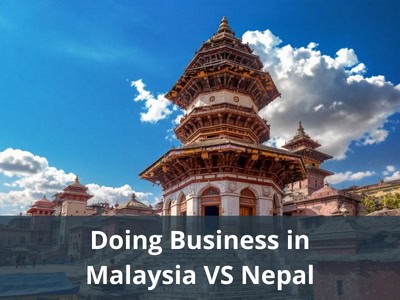Ready to Expand into India? Choose 3E Accounting Today!
Stay Secure, Stay Successful With 3E Accounting Services

Here’s a quick overview of the key differences for easy reference.
| Factor | Malaysia | Nepal |
|---|---|---|
| Business Environment | Stable, pro-investment, well-regulated | Developing, bureaucratic, inconsistent |
| Corporate Tax Rate | 24% | 25% (more for financial sectors) |
| Capital Gains Tax | Yes, varies by asset type | Yes, varies by holding and category |
| Ease of Incorporation | Digital, 3–5 days | Manual, 2–3 weeks |
| Business Costs | Low, infrastructure supported | Low, but less efficient systems |
| Market Access | ASEAN, China, global networks | India, China, limited regional trade |

Selecting the right partner is crucial when it comes to starting a business in Malaysia. At 3E Accounting, we offer a comprehensive range of solutions designed to simplify the entire process of company incorporation in Malaysia. From ensuring compliance with local regulations to providing expert guidance tailored to your specific needs, we make the journey seamless.
For entrepreneurs looking to navigate Malaysia company registration or explore company setup in Malaysia, our team provides unmatched expertise and support. Additionally, our company incorporation services are tailored to help you succeed in the competitive business environment.
With a deep understanding of the region’s business landscape, we also provide resources for setting up businesses in Malaysia, ensuring that every step is clear and efficient. Whether you need assistance with corporate secretarial or company secretary services, we are here to help.
To explore our services or discuss your business needs, contact 3E Accounting. With our strong presence in Malaysia and a proven track record, we are your trusted partner for success in Asia.
Stay Secure, Stay Successful With 3E Accounting Services
Answer: Malaysia offers digital registration, better infrastructure, and access to global trade networks. For details, refer to this guide to starting a business in Malaysia.
Answer: Malaysia has a flat corporate tax of 24% with available incentives. Nepal’s is 25%, with additional tax layers for certain industries. Learn more through Malaysia company registration insights.
Answer: Malaysia supports digital incorporation completed in under a week. Foreign investors using company incorporation in Malaysia services enjoy faster processing than Nepal’s manual system.
Answer: Nepal has lower wages, but Malaysia offers better infrastructure and scalability. Many prefer setting up businesses in Malaysia for operational efficiency.
Answer: Malaysia offers ASEAN and global trade access. Investors using company incorporation services gain easier regional expansion.
Answer: Yes, Malaysia permits full foreign ownership in most sectors. Company setup in Malaysia is streamlined and compliant with SSM requirements.
Answer: Yes, it’s mandatory. Appointing a licensed professional from trusted company secretary services ensures compliance.
Answer: The Companies Commission of Malaysia (SSM) manages company registration and corporate regulations in Malaysia.
Abigail Yu
Author
Abigail Yu oversees executive leadership at 3E Accounting Group, leading operations, IT solutions, public relations, and digital marketing to drive business success. She holds an honors degree in Communication and New Media from the National University of Singapore and is highly skilled in crisis management, financial communication, and corporate communications.

